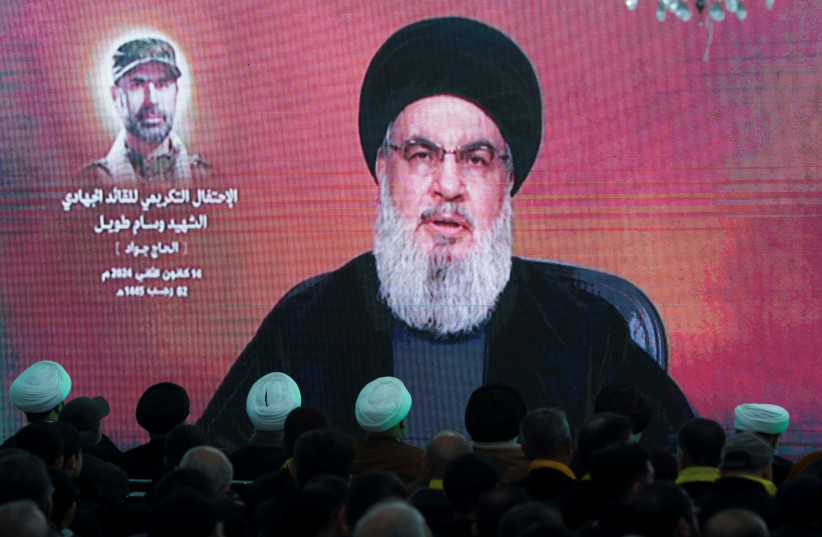Iran and its terrorist proxies in the Middle East are working toward a full-scale regional conflict, according to some assessments. This conflict would serve their interests and achieve Iran’s strategic goals, which could benefit China and Russia.
But it is important to distinguish between the goals of the so-called resistance axis led by Iran and the goals of the strategic opponents of the US, such as China and Russia.
The contradiction between these goals and the way they are achieved is obvious. The Iranian regime’s desire for a direct confrontation with the US or Israel remains difficult to assess.
Teheran indifferent to human casualties
The assessments of Iranian anger relate primarily to the increasing attacks on Iran’s regional proxies. These proxies are under heavy attack by US forces and the Israeli army in Syria and Iraq.
However, Tehran seems indifferent to human casualties in counter-operations, regardless of the significance and weight of the casualties.

Teheran wishes to ensure its own survival
The regime’s priority is to ensure its own survival and avoid direct threats to its fate. If Iran had been angered enough to respond forcefully to US or Israeli counter-operations, it would have responded to the assassination of General Qassem Soleimani, the commander of the Islamic Revolutionary Guard Corps (IRGC).
Iran opted for a measured response in this case, taking limited measures to save face without escalating to a major retaliatory strike commensurate with the importance of Soleimani, who was a linchpin of the regime.
Some IRGC commanders have viewed the bloody attack on Israel by the Hamas terrorist movement on October 7 as revenge for the killing of Soleimani.
Iran later quickly denied this statement, although it was made by the official spokesman of the Revolutionary Guard, a man who knows exactly what to say, when to say it, and in what style. So this statement is probably a message that Tehran wanted to convey to all concerned, assuming that it took the initiative to deny it after making sure it got to the address.
Conflict with Israel, a long-term strategy for Iran
This is a well-known tactic used in such circumstances. Iran views the strategic conflict between the US and Israel as a long-term struggle and direct confrontation is not among the options on the decision-making table.
Tehran is aware that a direct military conflict is not in its interests and, unlike unconventional conflicts, is unlikely to lead to tangible operational gains.
Iran wants to use unconventional conflicts to undermine the capabilities of the Israeli and US armies. The proxy war that Iran is relying on could also completely or partially spell the end of the Iranian terrorist militias.
Israel would eliminate most of the Hamas terror group’s operational capabilities in Gaza by the end of the current war.
Hezbollah's behavior - strongest indicator of Iran’s intentions toward Israel
Israel could neutralize the threat from Lebanese Hezbollah to secure the northern front and return the inhabitants of these areas to their homes. Hezbollah’s cautious behavior during the Gaza war and the delicate balance between action and escalation, which could require a comprehensive Israeli response, explain this.
Hezbollah knows that Israel has decided to eliminate the threats from the north and south, and the escalation is a good justification for turning northward after the Gaza war. The Israeli leadership has pointed to the devastation in Gaza as the likely fate of Lebanese territories if Hezbollah does not desist from threatening Israel’s security.
HEZBOLLAH IS Iran’s most important and powerful terrorist arm in the Middle East. It is the keystone of Iran’s strategy in Syria and Lebanon to deter Israel and blackmail the West in the plexus of complex relations with the US and its NATO allies.
It is unlikely that Iran would purposefully engage Hezbollah in a battle that it knows is not comparable to the Gaza war; other parties, especially the US, would become involved, and Iran would lack the regional and international sympathy that the Gaza war enjoys because Hezbollah operates as a force outside the control of the Lebanese state.
We believe that Hezbollah’s behavior is the most important indicator of Iran’s intentions toward Israel. While Hezbollah has recently stepped up its rocket attacks on Israel, claiming that this is an initial response to the assassination of Hamas leader Saleh Al Arouri on Lebanese soil, it is difficult to see this escalation as a premise for a full-scale escalation.
Rather, it is an attempt to set new rules of the game and deter possible Israeli operations against other terrorist leaders, whether from Palestinian movements or Hezbollah itself. What is happening now is a delicate balancing act between Israel and Iran’s proxies under Tehran’s direct leadership and patronage.
Hezbollah is confident that after eliminating the terrorist threat in Gaza, it will be the next domino to fall. Eliminating the Hezbollah threat has the same priority as eliminating the Hamas terrorist movement in Israel’s eyes.
So deterring this pro-creative thinking in the Netanyahu government can be seen as one of the main goals of the calculated escalation of Hezbollah militias in the north, even if it appears to be manifesting itself as retaliation for the assassination of Al Arouri. Certainly, Iran would not risk plunging Hezbollah into a broader confrontation with Israel.
Such a decision would be an adventure with a fateful outcome, considering how much Iran has invested in building and deploying these terrorist operatives for decades. This confrontation could be the last one to finally eradicate these terror puppets.
This outcome would have a huge impact on Iran’s influence and regional and international standing, due in large part to the practices of its proxies and their ability to spread chaos and unrest in the region.
The writer is a UAE political analyst and former Federal National Council candidate.
